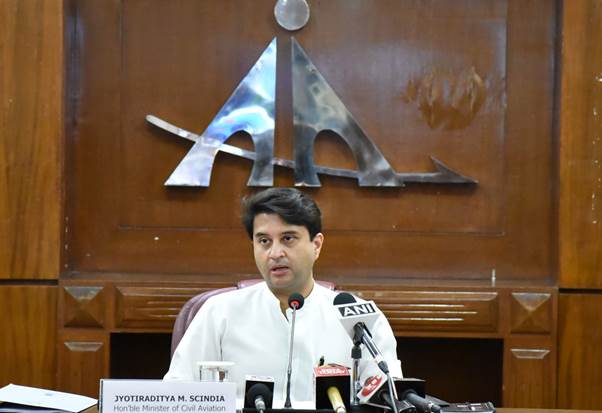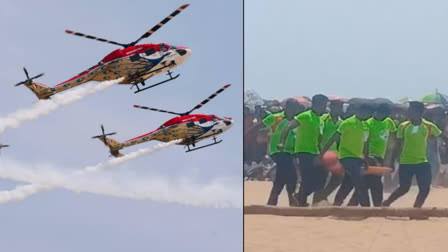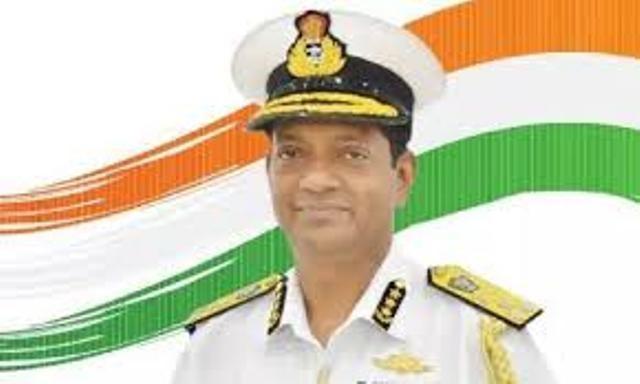Colombo: The frequency of flights between Chennai and Sri Lanka’s Jaffna will be increased from four times a week to daily services from July 16, a move that will also amplify trade and commerce, Union Minister of Civil Aviation Jyotiraditya Scindia said.
Scindia made the announcement in a pre-recorded video message on the second day of the 67th annual convention of the Travel Agents Association of India (TAAI) being hosted in Colombo.
Over 500 tourism, aviation and travel experts, and tour operators have gathered in Colombo for the Indian Travel Congress.
He said the convention, taking place in the island nation, highlighted the old cultural ties between India and Sri Lanka.
“I believe that our partnership with Sri Lanka gives us a rare opportunity to undertake several reforms to address short-term challenges of the sector” and become an important power of influence in the global aviation ecosystem, Scindia said.
“The first air service agreement between the two countries was signed in 1968, which allowed Indian carriers to operate aircraft from any point in India to any point in Sri Lanka, which enhanced the connectivity to the Global South,” he said.
Currently, 16 flights are operational from different sectors of India to Colombo, the minister added.
“Today, through this platform, I am happy to announce that based on increased demand and potential of this route, to amplify trade and commerce, we will increase this frequency from four times a week to daily flights, effective from July 16,” Scindia said.
“Cargo movement has also been smoothed, and with the assistance from both governments, we are operating a direct flight from Chennai to Jaffna,” he added.
In December 2022, India and Sri Lanka resumed flight services between Chennai and Jaffna, three years after the island nation discontinued the services due to the COVID-19 pandemic.
The airport in Palaly was named the Jaffna International Airport as Sri Lanka’s third international airport in October 2019 and had its first flight from Chennai.
The tourism sector is the main source of foreign exchange earnings for cash-strapped Sri Lanka. However, the onset of the pandemic in 2020 severely crippled the tourism sector and was one of the major reasons for Sri Lanka’s economic travails.
Asserting that discussions will help identify key milestones that need to be achieved over the next decade for the aviation sectors of both nations, Scindia urged all stakeholders to come together to take the industry to “newer heights of success and growth”.
Top industry experts from aviation companies, associations, and hospitality and tour operating firms participated in various panel discussions on day two of the event, followed by business-to-business sessions.
Scindia underlined that Buddhism remains “one of the strongest pillars connecting the two nations and civilisations”, and remarked that in recent years, the bilateral relationship has been marked by growing trade and investment, cooperation in the fields of development, education, culture, tourism and aviation, as well as broader issues of international interest.
“Our Prime Minister Narendra Modi’s first foreign visit as a PM, after swearing in (to the post) for the second time, was to Sri Lanka. And, he was also the first foreign leader to visit Sri Lanka after the very unfortunate Easter bombings,” Scindia said, referring to the 2019 Easter bombings in Sri Lanka, which killed 270 people, including 11 Indians.
“Thus, India and Sri Lanka have built upon a legacy of intellectual, cultural, religious and linguistic connections. We have stood by each other, shoulder-to-shoulder, in times of happiness but, more importantly, in times of crises,” Scindia said, adding that he was pleased to learn that this convention is exploring new and futuristic avenues of travel to “transcend borders and transform lives”.
Scindia, in his message, said, “Prior to 2014, India’s aviation sector was on the runway, in the last nine years, it has finally taken off,” and asserted that “A stable and competitive aviation sector is on the anvil.”
He added that it was a great time to “infuse a new thinking in the sector, given that the Indian civil aviation industry is undergoing unprecedented transformation.”
“In the last nine years, India has both advanced and expanded, doubling the number of airports from 74 in 2014 to 148 today, from March-June 2023, the average international daily flights from India increased from 1,002 to 1,042 up nearly 4 per cent,” Scindia said.
“And, similarly, international passengers for the same period have increased by 5.3 per cent, with approximately 1.8 lakh passengers boarding international flights from India on a daily basis,” he noted.
“As we evolve, we are also transforming towards a better quality service, better infrastructure, greater last-mile connectivity, and thus more cross-border tourism,” Scindia said.


















